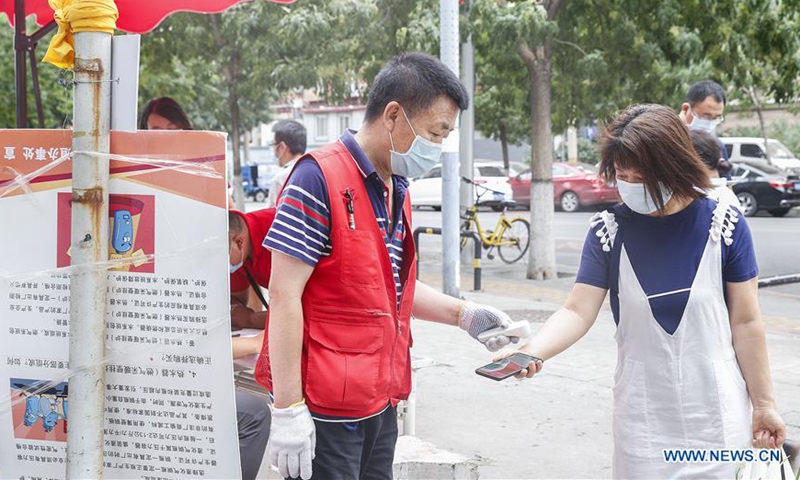
The law was passed by the 40th meeting of the Standing Committee of the 15th Shanghai People's Congress on Tuesday, as Shanghai's measure against COVID-19 has entered a period of consolidating its fruits and locals are resuming work and life little by little.
According to the law, the managers and operators of public places or residential communities shall conduct verification of health information as required, and report to the relevant government departments in a timely manner if they find that the information does not meet the requirements for epidemic prevention and control.
The collection and processing of personal information during verification shall comply with the relevant laws and regulations on personal information protection. The collected personal information shall only be used for epidemic prevention and control, and cannot be disclosed to third parties, according to the law.
At present, Beijing is still in a tug of war against Omicron, as several cluster infections were caused by loopholes in implementing the anti-epidemic measures.
Several officials from state-owned company China Railway and Beijing Postal Administration have been punished for inadequate management practices and supervision during the anti-epidemic work, which resulted in cluster infections and further spread of the virus.
Authorities from Beijing anti-epidemic office sent a message to its residents on Wednesday to remind citizens that reporting cases truthfully and swiftly is key to the prevention and control of the virus.
Recently, a patient falsely reported and concealed his travel schedule. The man went to several districts, leading to cluster infections. The public security authorities have filed a criminal case against him in accordance with the law. This case reminds the public that concealing or lying about one's itinerary will only bring harm to people as well as oneself and one can face legal consequences, the office said.
The office also warned in another message that there are no bystanders or outsiders in epidemic prevention and control. Everyone has to be responsible. It is the responsibility of every citizen in the capital to undergo nucleic acid testing, to disclose travel histories and to reduce travel when working from home.
Global Times



